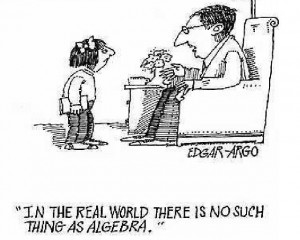During the Storey reading I was struck by the statement “discourses produce knowledge and knowledge is always a weapon of power” (7). I found this to be one of the most significant truths I have ever come across in philosophy.
As mentioned in Storey’s paper, with the example of the Victorians creating the concept of sexuality through discussion, the discourse that follows observation, studying, and experimentation of a certain subject allows for the generation of knowledge in that specific field. This then facilitates the creation of power, as a better understanding of something or a theory can be used to categorize and organize behavior, dividing it into “normal” and “abnormal.”
I had never really thought of knowledge as a weapon, but, when looking back at historical examples, it is seemingly a very relevant means by which to control people. Time and time again, history has proven that if you have knowledge, or appear to have knowledge, you have a better chance of manipulating and then taking command over people. We can see this with dictators, corrupt politicians, etcetera. Furthermore, people are naturally drawn to people who are or seem knowledgeable, because they want to be with those who seem to have the answers to unknowable and understandable questions, and are prone to adhering to societal norms generated through the public awareness of certain forms of knowledge for fear of appearing strange or “abnormal.”
Because the human mind is prone to categorization, people tend to divide the world into very black and white terms, deeming one thing as good and the opposite as bad. Through the process of the creation of knowledge through discourse, which is then followed by categorization and organization of behavior, the people who have a good understanding of the subject undergoing exploration hold power over others who lack that knowledge, and are able to decide, based off of their own personal opinion, what should be deemed right and wrong. Therefore, knowledge at the most basic of level can be turned into a weapon depending on the hands of the people it falls into, as it can be used to manipulate and control the innocent or naive.
When I read about the relationship between knowledge and power, it made me a bit nervous in terms of the negative effects it can have upon society , and how there is seemingly no way to combat it if it falls into the hands of or is developed by unscrupulous people. Do you think there is any way in which to prevent the obtainment of knowledge from being used to manipulate and oppress people?
, and how there is seemingly no way to combat it if it falls into the hands of or is developed by unscrupulous people. Do you think there is any way in which to prevent the obtainment of knowledge from being used to manipulate and oppress people?
 Continue reading
Continue reading 

